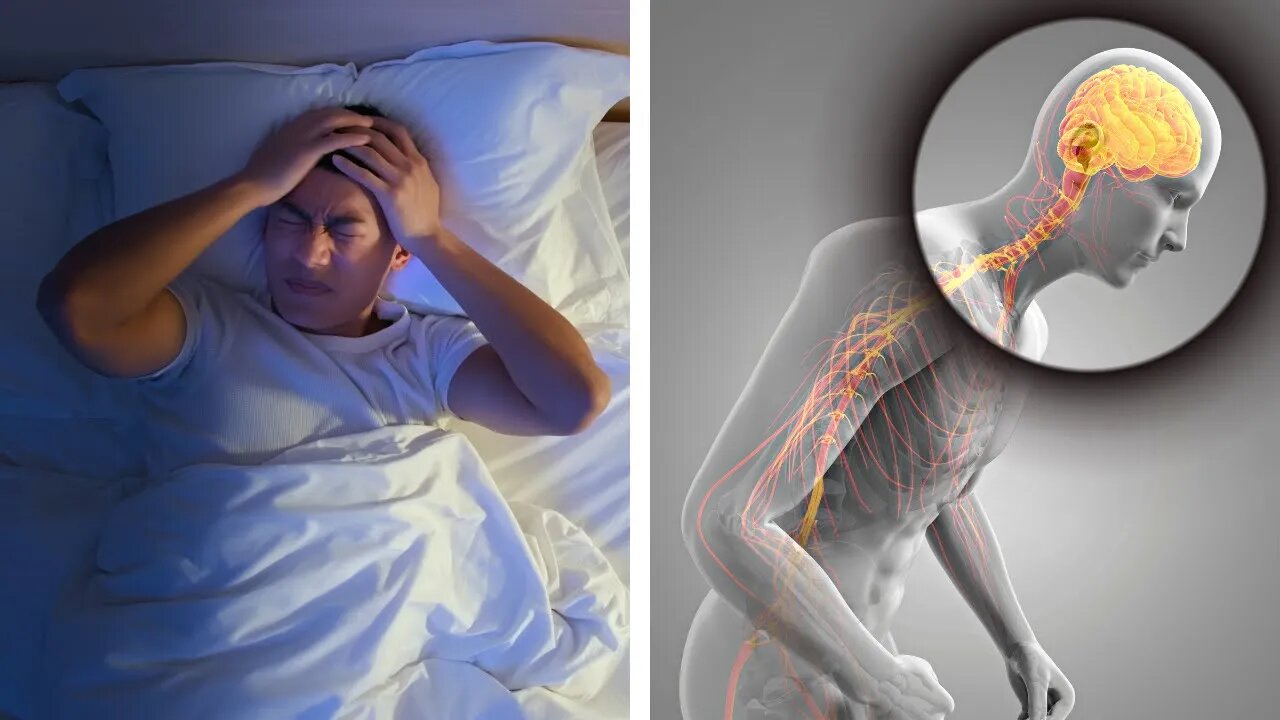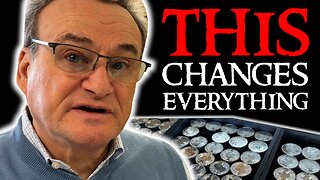Premium Only Content

If You Get Too Little Sleep Often, This Will Happen To Your Brain!
In today's video, you will learn why the brain reduces in size when you don't sleep and its consequences.
Do you sleep well? From 0 to 10, how would you rate your sleep?
Are your nights followed by insomnia or interrupted sleep? Do you have trouble falling asleep?
When we talk about health, poor sleep can increase the risk of heart disease, heart failure, high blood pressure, strokes, and diabetes.
Some people even say that it lowers sexual drive. Did you know that?
Even knowing how important sleep is, many people still can't rest at night simply because they can't easily fall asleep.
Do you suffer during the day because your nights aren't peaceful, then you know how hard it is to stay alert and concentrated during the day, right?
This happens because sleep has the role of resting and restoring the body.
Without a good night's sleep, the body will suffer the side effects: tiredness and toxins that hinder its functioning.
But this is not the only thing that happens when the body is prevented from sleeping.
According to a study from the University of Wisconsin-Madison, poor sleep causes the brain to self-destruct over the years.
When a person sleeps well, all your body goes through a cleansing, including the brain, which eliminates defective and dead cells during this time.
But if the person doesn't sleep well, this self-cleaning process is interrupted.
The cells responsible for cleaning get confused and start the process while the person is still awake.
The problem is that, in this case, healthy cells end up also eliminated.
In this study, researchers analyzed the sleep conditions of lab mice and watched their brains through imaging scans.
Researchers noted that mice who slept well had normal levels of brain cell activity.
On the other hand, mice with interrupted sleep suffered from an abnormally high brain cell elimination, which also happened in parts of the brain where it shouldn't happen.
In a certain way, the results are alarming because past studies had already associated sleep deprivation with diseases like Alzheimer's and dementia.
We can't say for sure that that sleep deprivation directly causes these conditions - other studies more focused on this matter are still necessary.
But researchers say that lack of sleep definitely isn't good for the brain: the recommendation of a good sleep routine is still the rule for everybody.
If you can't get a night of restorative sleep, try dimming the lights in your house, take a relaxing bath, and maintain a good diet.
Slow down and avoid anything that makes you agitated, like exposure to screens.
If you want, talk to your doctor to have an evaluation.
We have many videos on the channel that can help you sleep better: essential oils, relaxing teas, natural supplements, etc.
If you have ever tried any of these tricks, leave your opinion in the comments below.
Follow us on:
Facebook - https://bit.ly/38BWbw3
Pinterest - https://bit.ly/2Irvwa6
---------------------------------------
Disclaimer: The materials and the information contained on Natural Cures channel are provided for general and educational purposes only and do not constitute any legal, medical or other professional advice on any subject matter. These statements have not been evaluated by the FDA and are not intended to diagnose, treat or cure any disease. Always seek the advice of your physician or other qualified health provider prior to starting any new diet or treatment and with any questions you may have regarding a medical condition. If you have or suspect that you have a medical problem, promptly contact your health care provider.
-
 3:40
3:40
Natural Cures
1 year ago $0.90 earnedToothpaste Is All You Need To Keep Mice Away From Your House
3.42K4 -
 LIVE
LIVE
Nerdrotic
52 minutes agoHollywood LOST the Culture War! Star Trek Section 31, Disney Lies! | Friday Night Tights #338 w RMB
2,354 watching -
 LIVE
LIVE
Dr Disrespect
5 hours ago🔴LIVE - DR DISRESPECT - TRIPLE THREAT CHALLENGE - NOBODY STOPS US
4,523 watching -
 LIVE
LIVE
Twins Pod
2 hours agoMAGA P***star is HATED By Conservatives AND Leftists... | Twins Pod - Episode 49 - Brandi Love
1,484 watching -
 LIVE
LIVE
Scammer Payback
1 hour agoCalling Scammers Live
733 watching -
 1:10:38
1:10:38
Awaken With JP
2 hours agoJFK Files to be Released! Trump’s Boss Move - LIES Ep 75
17.8K19 -
 1:50:19
1:50:19
The Quartering
3 hours agoTrump NUKES The Deepstate, BANS Trans In Military & Terminates Dr. Fauci Protections!
47.8K40 -
 58:24
58:24
Uncommon Sense In Current Times
18 hours agoUnbreakable: How Jeff Younger Stands Firm Against Courts, Government, and Personal Attacks
79 -
 1:56:01
1:56:01
Nina Infinity
21 hours agoGOOD NEWS - Infinite Hope # 219 | Birthday Stream with Guests!
4.35K -
 15:08
15:08
Silver Dragons
23 hours agoWhat Will the TRUMP Tariffs Will Do to Silver & Gold Price?
4.5K3